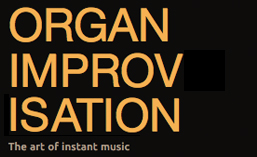During the Baroque music period, French organists developed a style of playing and pieces that has become known as the French Classical School. Notable composers during this period include:
- François Couperin (1668–1733)
- Louis Marchand (1669–1732)
- Nicolas de Grigny (1672–1703)
- Pierre Dumage (1674–1751)
- Jean-Adam Guilain (ca 1675/80 –after 1739)
- Louis-Nicolas Clérambault (1676–1749)
- Jean-François Dandrieu (ca 1682–1738)
Before improvising in a style, it is always a good idea to play as many of the written pieces as possible. Scores from these and other composers from the era are available from IMSLP. While there will be differences in the pieces between composers, by playing through a large part of the repertoire, it becomes easier to identify the common characteristics of the style.
Movement types
Whether written for use with a hymn, movements of a mass, or for the Magnificat, French Classical composers created suites of pieces, often titled by the expected registration or texture of the movement. The most common movements include:
- Plein jeu
- Fugue
- Duo
- Trio
- Récit
- Grand jeu
While the order and number of interior movements varies, the suites almost always start with a Plein jeu and end with a Grand jeu. In the category of Récit, I am including movements that feature a solo stop and accompaniment such as Tierce en taille and Basse de trompette. Don’t worry if these titles don’t mean anything to you for now. I plan to spend the next few weeks explaining each one individually, offering comments on the style, registration, and steps we can take towards improvising these different pieces.
In the meantime, go find (or download) some scores to play through and enjoy this audio clip of one of the current French masters, Michel Chapuis, improvising in French Classical style for your inspiration:
Hoping you will find inspiration from the French Classics,
Glenn
Recent additions to organimprovisation.com:
Organists:
Themes:
Books:
Newsletter Issue 42 – 2015 07 20
See the complete list of past newsletter issues here.
Sign up to receive future issues using the box to the right on this page.



